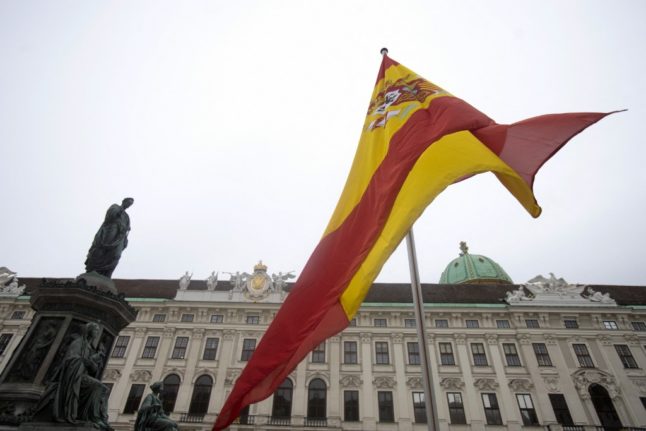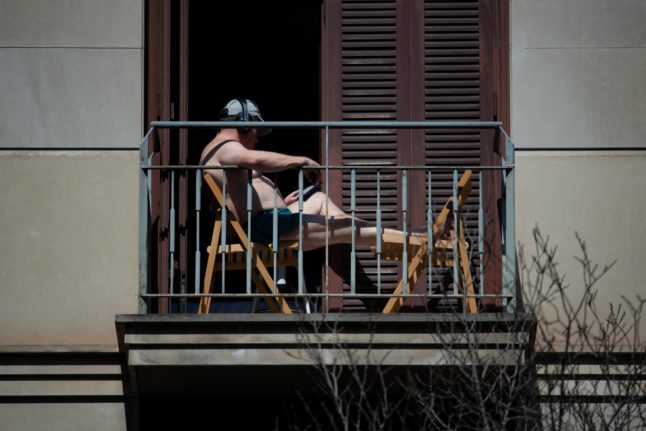Spain’s Democratic Memory Law passed the Spanish Senate on October 5th and officially became law on October 21st.
Part of the legislation includes the new Ley de Nietos, Grandchildren’s Law in English.
The law allows for descendants of Spaniards who fled Spain during the Civil War and Franco’s dictatorship to claim Spanish citizenship without ever having lived there.
According to estimates, as many as 700,000 people, the majority in Latin America, could be eligible. It is even believed that Latino migrants living in Spain illegally could be eligible for citizenship.
What does it mean for citizenship?
The wide-ranging bill builds on legislation from 2007 that offered citizenship to the children of exiled Spaniards, and the revised law has earned the nickname the ‘grandchildren’ law because it offers a path to citizenship for grandchildren too, working on the principle of bloodlines as opposed to place of birth.
This allows the grandchildren of Spaniards to obtain Spanish citizenship directly from their home country, without having to have lived a minimum period in Spain beforehand, and the law also covers the descendants of women who get citizenship by default through marrying non-Spaniards before 1978.
Applicants must show proof of their Spanish blood and that their ancestors were fleeing persecution, though the definition seems flexible.
According to the law, victims of Francoism and those eligible are defined as “anyone who suffered physical, moral or psychological damage, economic damage or the loss of fundamental rights”.
What is Spain’s Democratic Memory Law?
The grandchildren’s law is part of the broader Democratic Memory Law that aims to “settle Spanish democracy’s debt to its past” and deal with the legacy of its Civil War and Franco’s dictatorship.
Legislation concerning Spain’s dictatorial past in always controversial, and this law was no different – it passed the Spanish Senate earlier in October with 128 votes in favour, 113 against, and 18 abstentions.
The Spanish right have long been opposed to any kind of historical memory legislation, claiming that it digs up old rivalries and causes political tension. Spain’s centre-right party, the PP, have promised to overturn the law if it wins the next general election.
READ ALSO: Spain’s lawmakers pass bill honouring Franco-era victims
Other aspects of the law include the establishment of a DNA register to help families identify the remains of the tens of thousands of Spaniards were buried in unmarked graves; the repurposing of the Valley of the Fallen mausoleum, where Francisco Franco was buried until his exhumation in 2019; and a ban on groups that glorify the Franco regime.
Offering Spanish citizenship to the descendants of Spaniards who fled the country is one way Spain’s PSOE-led government intends to settle its debt to the past. Between the end of the Civil War in 1939, and 1978, when Spain’s new constitution was approved as part of its transition to democracy, an estimated 2 million Spaniards fled the Franco regime.
Who is eligible for the grandchildren’s law?
So, who is eligible for Spanish citizenship under the new law? There are a number of groups included.
- Children or grandchildren born outside Spain to a Spanish father, mother, grandfather, grandmother who were exiled and left Spain who due to ‘physical, moral or psychological damage, economic damage or the loss of fundamental rights’, or renounced their Spanish nationality.
- People born outside Spain to Spanish women who lost their nationality by marrying foreigners before the 1978 Constitution was established.
- The adult sons and daughters of Spaniards who gained nationality due to the 2007 democratic memory law.
How do you apply?
Potential applicants can apply via the Civil Registry in the Spanish Consulate in their home country, and will need several documents to not only prove the Spanish nationality of their ancestor, but also to prove their descendent was exiled. The basic documents include:
- Identity document
- The applicant’s birth certificate
- The birth certificate of the applicant’s Spanish descendent
- For those applying for citizenship via a grandparent, it will also be necessary to provide the birth certificate of the father or mother that corresponds to the family line with Spanish blood.
Proving exile status
There are millions of people around the world with Spanish heritage, particularly in Latin America. That’s why the law requires proof that descendants left Spain in the face of persecution and were exiled, and that they left Spain between January 1st, 1956 and December 28th, 1978. In order to prove this, applicants will need to provide one of the following:
- Documentation proving that you or the descendent have been a beneficiary of the pensions granted by the Spanish state.
- Documentation from the United Nations International Refugee Office and the Refugee Offices of the host States that assisted Spanish refugees and their families.
- Certifications or reports issued by political parties, unions or any other entity or institution (whether public or private), recognised by the Spanish state or the host state of the exiles and their descendants that are related to exile or political persecution.
When is the citizenship offer?
The citizenship offer closes in October 2024.



 Please whitelist us to continue reading.
Please whitelist us to continue reading.
What is meant by “ Documentation proving that you or the descendent have been a beneficiary of the pensions granted by the Spanish state.”. My mother a Spaniard left Spain in 1958. I was born in USA 1959 and have Spanish citizenship due to previous law. Does this new law mean my son in the USA can get Spanish citizenship? My mother does receive a Spanish pension from when she worked. Thanks